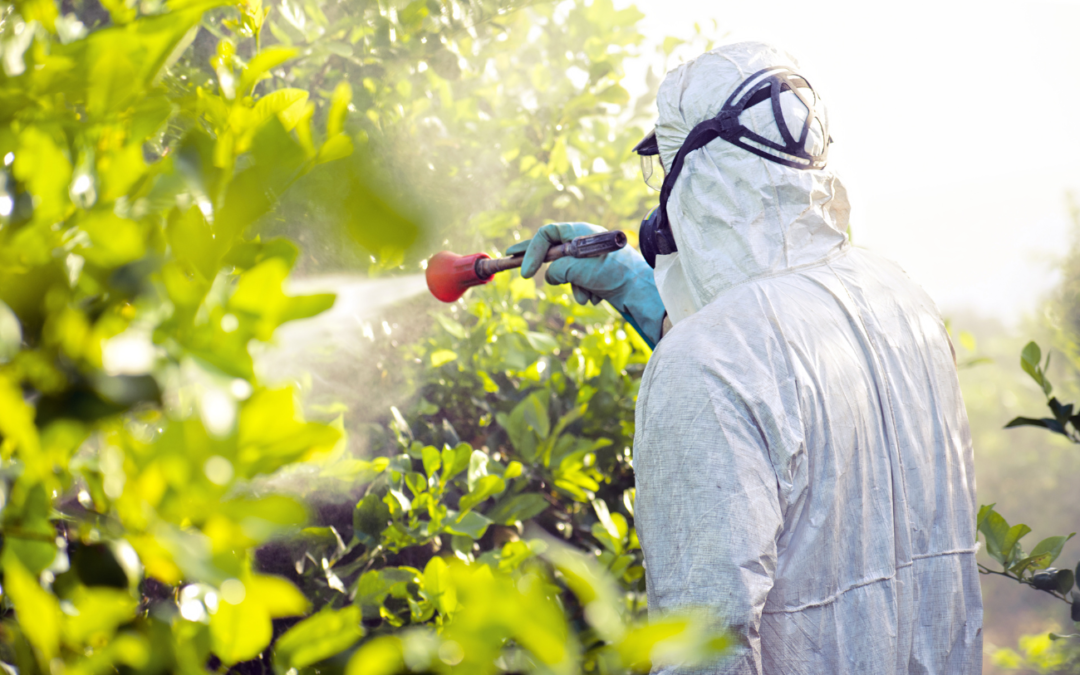We’re constantly surrounded by products that contain harmful chemicals. They’re in our food, personal care products, and household items. But, taking small steps to reduce exposure to these toxins can lead to a healthier, chemical-free lifestyle. Let’s explore how you can begin this journey by making mindful choices in various aspects of your daily life.
Rethink Your Food Choices
The food we consume is often the largest source of chemical exposure. From pesticides on fruits and vegetables to preservatives in processed foods, these chemicals can impact our long-term health. Here’s how to reduce toxins in your diet:
- Choose organic produce: Organic fruits and vegetables are grown without synthetic pesticides or fertilizers. If buying all organic isn’t feasible, start by focusing on the “Dirty Dozen” — the produce with the highest pesticide residues.
- Read ingredient labels: Processed foods often contain artificial flavors, preservatives, and additives. Opt for whole, unprocessed foods with minimal ingredients.
- Avoid plastic containers: Storing food in plastic can lead to chemical leaching, especially when heated. Use glass or stainless steel containers for food storage.
Switch to Natural Personal Care Products
From shampoos to lotions, many personal care items contain harmful chemicals such as parabens, phthalates, and synthetic fragrances. Long-term exposure to these chemicals can disrupt hormones and cause skin irritations. You can make safer choices by:
- Opting for natural deodorants: Many conventional deodorants contain aluminum and synthetic fragrances. Choose aluminum-free, natural alternatives made with essential oils or baking soda.
- Using chemical-free skincare: Look for skincare products with natural ingredients like shea butter, coconut oil, and aloe vera instead of synthetic chemicals.
- Ditching synthetic perfumes: Synthetic fragrances often contain phthalates, which can disrupt hormones. Swap them out for essential oil blends that are both safe and fragrant.
Create a Toxin-Free Home Environment
Our homes can harbor toxic chemicals in unexpected places, from cleaning supplies to air fresheners. Making conscious changes can significantly reduce indoor pollutants:
- Use eco-friendly cleaning products: Common household cleaners can release volatile organic compounds (VOCs) into the air, which can irritate the lungs. Choose non-toxic alternatives or make your own with natural ingredients like vinegar, baking soda, and lemon.
- Replace artificial air fresheners: Instead of using chemical-laden sprays or plug-ins, purify the air with plants, open windows for fresh air circulation, or use essential oil diffusers.
- Invest in natural furniture and bedding: Upholstered furniture and mattresses can release flame retardants and other chemicals into the air. Look for organic cotton bedding and furniture made from natural, untreated materials.
Cut Down on Toxins in Your Wardrobe
Fast fashion has brought synthetic fabrics like polyester and nylon to the forefront. These materials are treated with chemicals that can irritate the skin and contribute to pollution during production. Steps to detox your wardrobe include:
- Choosing natural fabrics: Opt for clothing made from natural materials such as organic cotton, wool, or bamboo, which are often less treated with chemicals.
- Washing new clothes before wearing them: Clothing is often treated with chemicals like formaldehyde during production. Washing new clothes before wearing them helps remove these chemicals.

Go Green with Gardening
Your outdoor space can also be a source of exposure to chemicals, especially if you use synthetic fertilizers and pesticides. For a more toxin-free environment:
- Grow your own produce: Gardening not only ensures that you’re eating fresh, organic vegetables but also reduces exposure to pesticides found in store-bought options.
- Use natural pest control: Avoid synthetic pesticides by using natural methods like companion planting, diatomaceous earth, or neem oil to keep pests away.
- Compost your waste: Composting organic waste reduces the need for synthetic fertilizers in your garden, enriching your soil naturally.
Prioritize Mental Detox
Reducing toxins isn’t just about the physical; it’s also about emotional and mental well-being. Stress can lead to physical ailments and affect your quality of life. Here’s how to detox mentally:
- Practice mindfulness: Incorporate practices like meditation or yoga into your daily routine to help manage stress and clear your mind.
- Declutter your space: A clutter-free environment promotes mental clarity. Simplify your space by getting rid of unnecessary items and organizing your surroundings.
- Limit screen time: Excessive exposure to digital devices can lead to stress, anxiety, and disrupted sleep. Take regular breaks from technology and spend time in nature to reset.
Transitioning to a chemical-free lifestyle is a gradual process, but each small step can lead to significant long-term benefits. By being mindful of the products you use, the food you eat, and your overall environment, you can minimize toxin exposure and create a healthier, more balanced life. Start small, and as you incorporate these changes, you’ll find that living with fewer toxins becomes second nature. Your body and mind will thank you!
For more tips, tricks, and wellness inspiration, make sure to follow us on Instagram!


